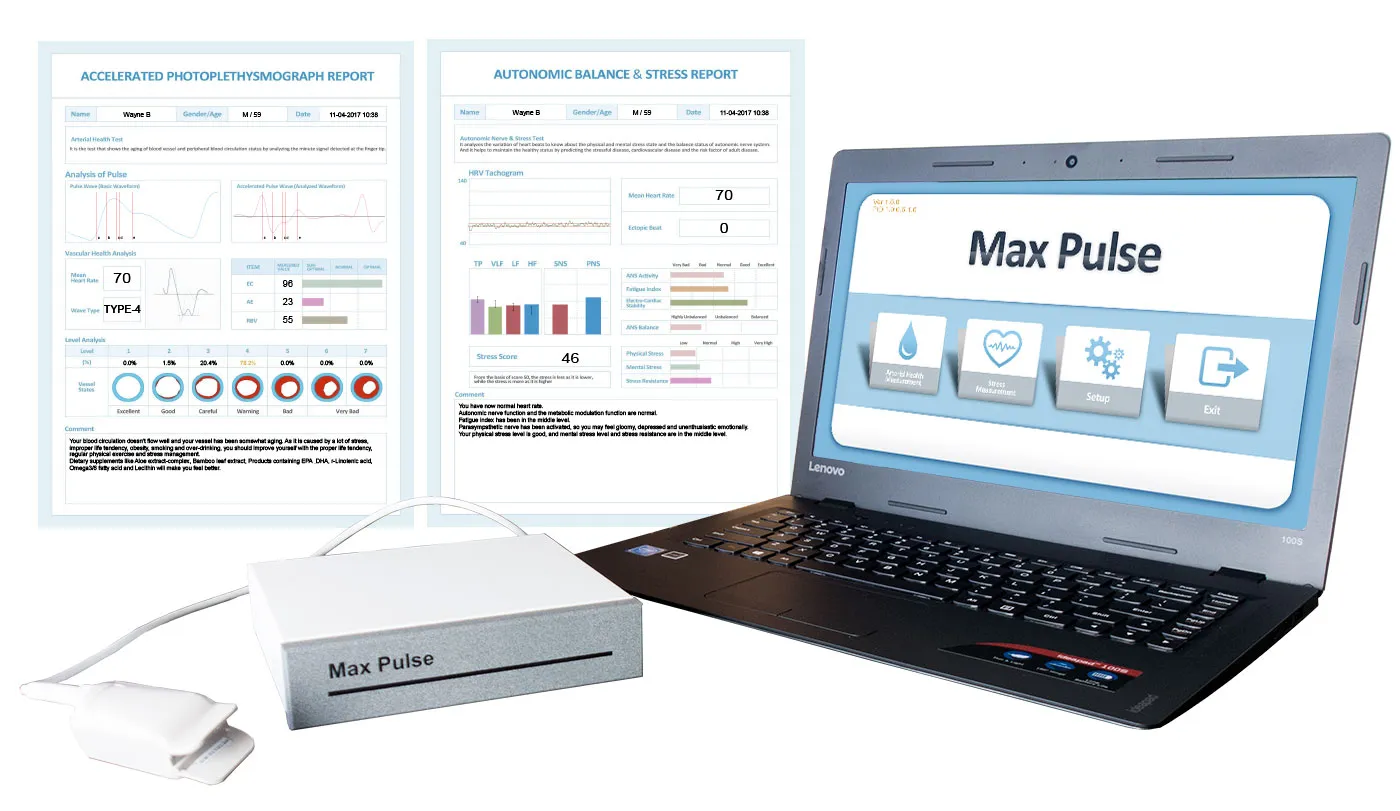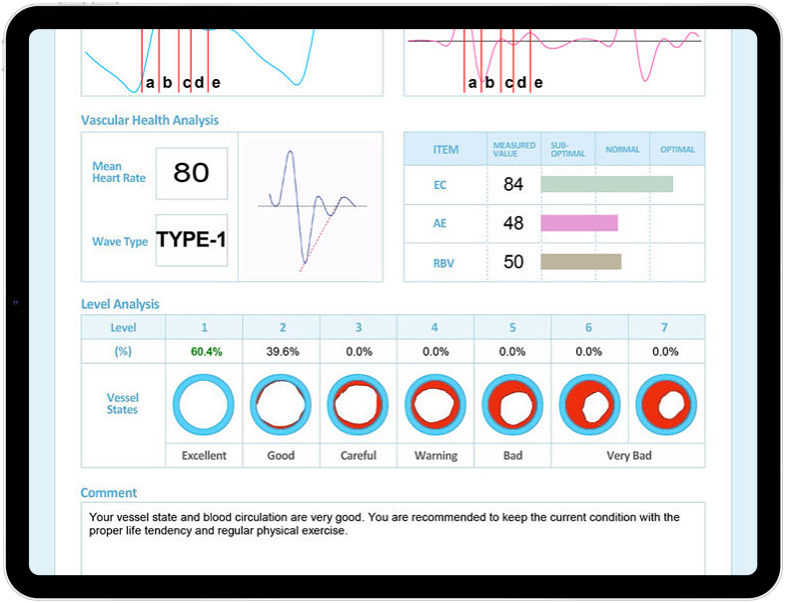Max Pulse

Max Pulse Cardiovascular Testing
The Max Pulse will show you in just 1 minute if your patient is suffering from arterial wall stiffness and gives you an accurate estimate of the biological age of the arteries.
The simple finger clip is non-invasive and the test is very simple to administer. The information allows you to get your patient onto an appropriate program to address the problem before it develops into something more serious.
Get Your Max Pulse Today!
